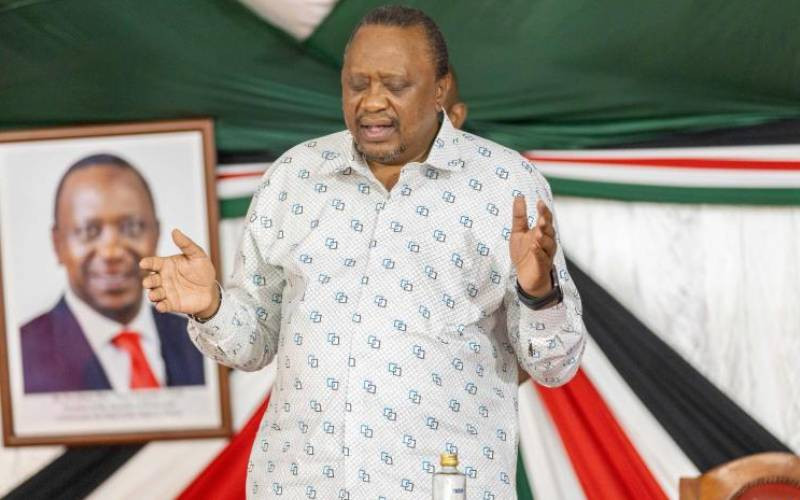President Uhuru Kenyatta during a non-denominational worship and prayer service that he hosted today at State House Nairobi.
×
The Standard e-Paper
Join Thousands Daily

President Uhuru Kenyatta’s name is back on the lips of presidential candidates – featuring even more prominently on the campaign trail – barely 30 days to the main ballot. Clearly, Uhuru is a focal point in this election.
The unveiling, in May, of Narc-Kenya leader Martha Karua as the presidential running mate of Raila Odinga of Azimio la Umoja - One Kenya, momentarily shifted focus from the President. But gradually, Uhuru has returned to the campaign mix.